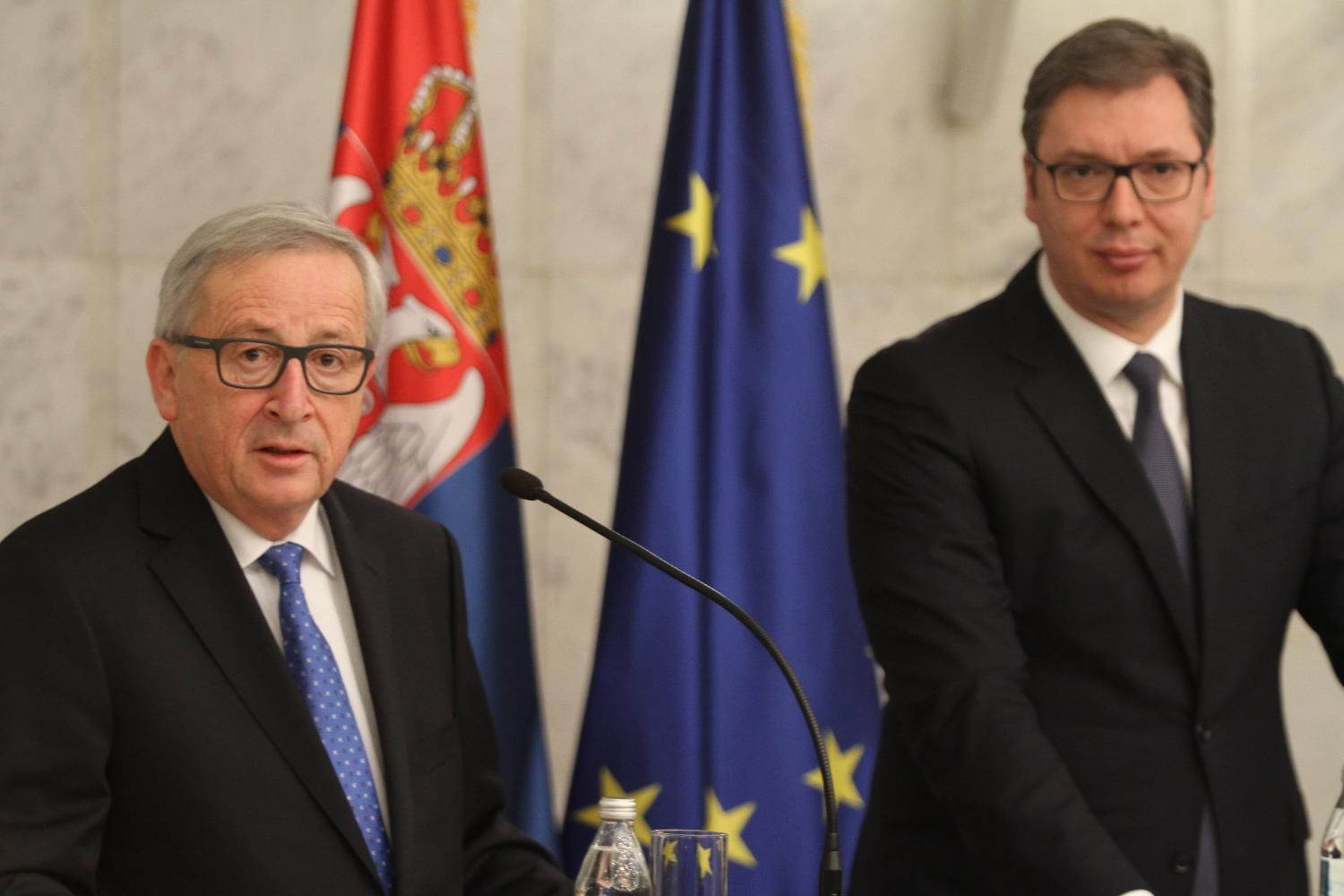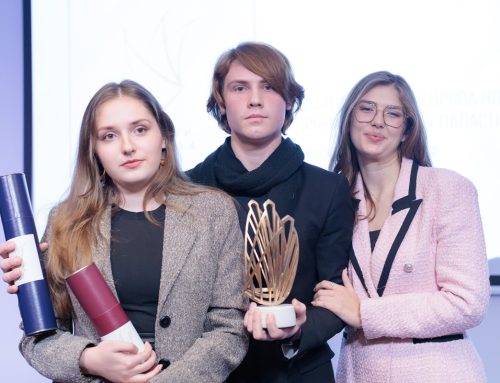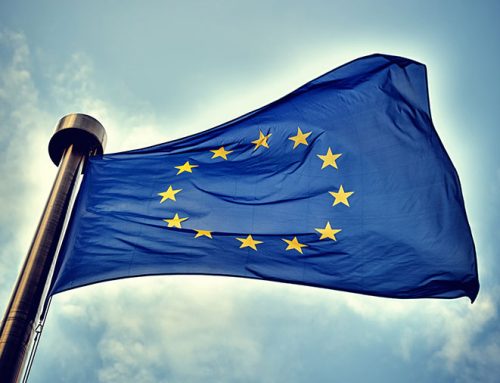European Commission President Jean-Claude Juncker said today in Belgrade that 2025, the year indicated in EC’s Strategy, was not a promise, but an encouragement for candidate countries.
At a press conference held together with President Aleksandar Vucic and Commissioner for European Neighbourhood Policy and Enlargement Negotiations Johannes Hahn, Juncker said that accession date was not decided by the EU, but primarily by Serbia.
“I know that many people talk about 2025. I want to be clear: 2025 is not a promise, it’s a perspective, an indicative date, an encouragement, because any EU-aspiring country deserves encouragement on the EU path, once it makes substantial effort in that regard,” Junkcer said.
EC President Jean-Claude Junkcer said that Serbia had already covered an impressive part of the EU path.
“A number of problems still have to be solved, for example in the area of rule of law, but Serbia has nevertheless made great progress,” Juncker said.

Fonet
Juncker: We cannot accept countries that have not resolved their territorial disputes
EC President said that he was certain Belgrade would contribute to resolving pending disputes in the region.
“Serbia needs no reprimanding; it knows perfectly well what the way forward is and where the future lies. The EU is not an economic conglomerate, it’s a union that takes care of its citizens and above all a union of values,” Juncker said and added that the EU strived for good cooperation with Serbian friends.
He said that the past serves us to draw lessons from it. “Together, Serbia and the EU will have numerous development opportunities. Statesmen are temporary, but nations are forever,” said EC President.
He also said that the EU sought normalization of relations between Belgrade and Pristina through a legally binding agreement.
“I think that we cannot accept any new members with unresolved territorial disputes. We cannot import bilateral issues. It is important to resolve such issues prior to accession as we want to offer the Western Balkans stability, and not import instability,” Juncker said.
“It is not up to us to define the nature of agreement, it is up to Belgrade and Pristina to define it,” EC President said, stressing that, following his meeting with President Vucic, he was reassured about the direction of Serbia’s path.

Fonet
Juncker: I always thought about the Western Balkans and Serbia as part of the EU
According to Juncker, the EU Enlargement Strategy covered six areas where Serbia should make greater efforts on its path toward the EU.
Asked whether the EU had intended to draw up an Action Plan and a roadmap through which Serbia and the EU would commit themselves to making effort in those areas, Juncker said that six areas had been defined, adding that the EU would be taking stock of progress and decide whether such actions are needed on the go.
“If necessary, we will devise an Action Plan together with Serbia,” Juncker said.
Juncker said that he did not come to Belgrade “for inspection and information gathering,” but for discussion.
“Serbia is a common topic of our discussion in Brussels. I wanted to talk to Serbia and its citizens face to face. It is easy to talk about others without hearing from them. This is not an inspection; it is an open discussion,” Juncker said.
As he put it, his visit shows that “we put the relations with the Western Balkans high on our agenda. I always thought about the Western Balkans and Serbia as a part of the EU; without them, the Union will not be complete. The EU is not exclusive to current Member States; other countries can become members as well,” Juncker said.
The Strategy, according to him, offers tools that can help accelerate Serbia’s journey toward the EU.
“The process of accession to and integration into European institutions is a merit-based one. We will talk to each candidate country and assess the progress they have made individually,” Juncker said, adding that Serbia is among the frontrunners in said process.
Juncker and Hahn, who are visiting Belgrade as part of their regional tour, will meet tomorrow with Serbian Prime Minister Ana Brnabic.

Fonet
Vucic: Finding a valid agreement with Kosovo – the biggest hurdle on the EU path
Serbian President Aleksandar Vucic said that Serbia regarded the European Union not as a goal, but as a process, adding that 2025 marks the year in which Serbia could join the EU provided it gets the hard job done.
“Finding a valid agreement with Pristina is the biggest hurdle on the EU path. This issue concerns all citizens and our future,” Vucic said and added that he discussed this issue openly with Juncker and Hahn.
We must work out a compromise with Albanians, one that would result in a win-win situation for both sides, he said.
“If we don’t manage to do this, we will be stuck in the past,” Vucic said, adding that he would rather avoid being stuck in the past.
He said that the majority of Member States expected an agreement that would lead to Pristina becoming a member to the UN and other international organisations, stressing, however, that five EU countries and Serbia expected a different outcome.
“Brussels acts only as a mediator and we are grateful for it; otherwise, we would probably never sit down at the same table and have a talk,” Vucic said.
Serbia has still much work to do regarding the rule of law before it can join the EU, Vucic said.

Fonet




